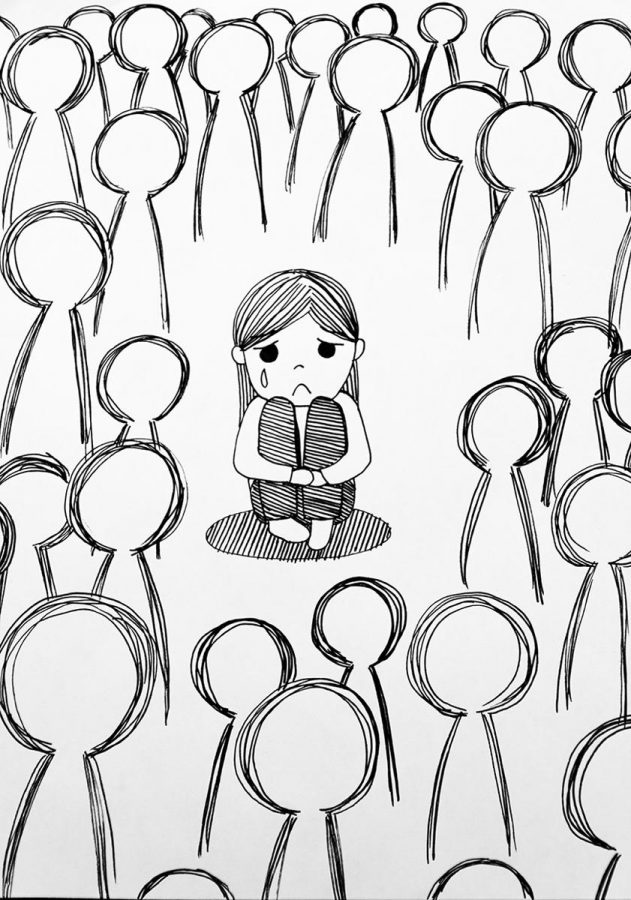Listen for loneliness
Many university students experience loneliness, which has adverse effects on their emotional and physical health.
February 1, 2015
At the beginning of every semester, many university students leave their family, friends and pets back home to greet fresh, new faces in the classroom. For many, this marks one of the most exciting yet paradoxically the most daunting parts of going to college. Undergraduates are told they will meet lifelong friends and come back with stories of late-night burrito runs and spontaneous road trips across the country. A large number of people do have compelling stories to tell when they return home and find lifelong friends, but unfortunately this is not the case for everyone.
Despite the masses of people surrounding university students in their classes and dorms, many of them still feel lonely. According to Loughborough University’s Counseling Services, recent research by M. Barker, T. Cox, and D. Clark indicates that about 17 percent of students in higher education experience chronic loneliness. Dr. John Cacioppo of the University of Chicago, author of “Loneliness: Human Nature and the Need for Social Connection,” defines loneliness as “the distress that results from discrepancies between ideal and perceived social relationships.” He likens loneliness to the feeling of hunger, arguing that like our human need for food, we also have a human need for social interaction. When these needs are not met we experience pain, which in relation to social interaction manifests itself in loneliness.
We cannot ignore this serious problem on our campuses. When loneliness is not addressed, it can lead to altered brain function, decreased learning, weight gain, depression and even early death in some cases. The Australian Institute of Professional Counsellors identifies some of its causes as physical isolation, the loss of a loved one, moving to a new location, and exacerbation of previous psychological problems. Though stemming from near universal hardships, much of society still stigmatizes loneliness, thinking that it shows weakness. According to Cacioppo, due to this stigmatization, many people keep their feelings of isolation to themselves, with men reporting loneliness less often than women.
When God created man, he said it was not good for him to be alone. Our brains are designed for communication and language. God created us to relate to him and others. It is important to understand when we are lonely, it is not a weakness we must conceal from others. Instead, we should treat it as a normal reaction to dissatisfaction in our current social relationships. However, once we recognize our feelings of loneliness we must acknowledge the need to make a change in our lives. That change may simply involve talking to someone about it, befriending people who share your interests, learning to view others in a better light or, if it persists, seeking professional counseling.
I hear so often from people at Biola and other universities who want to take part in the fun opportunities that college presents, but feel hurt and excluded from the community. We cannot merely brush off the pain of others. As members of a Christian community, whether we are lonely ourselves or not, we must show Christ’s love to those struggling with loneliness.







